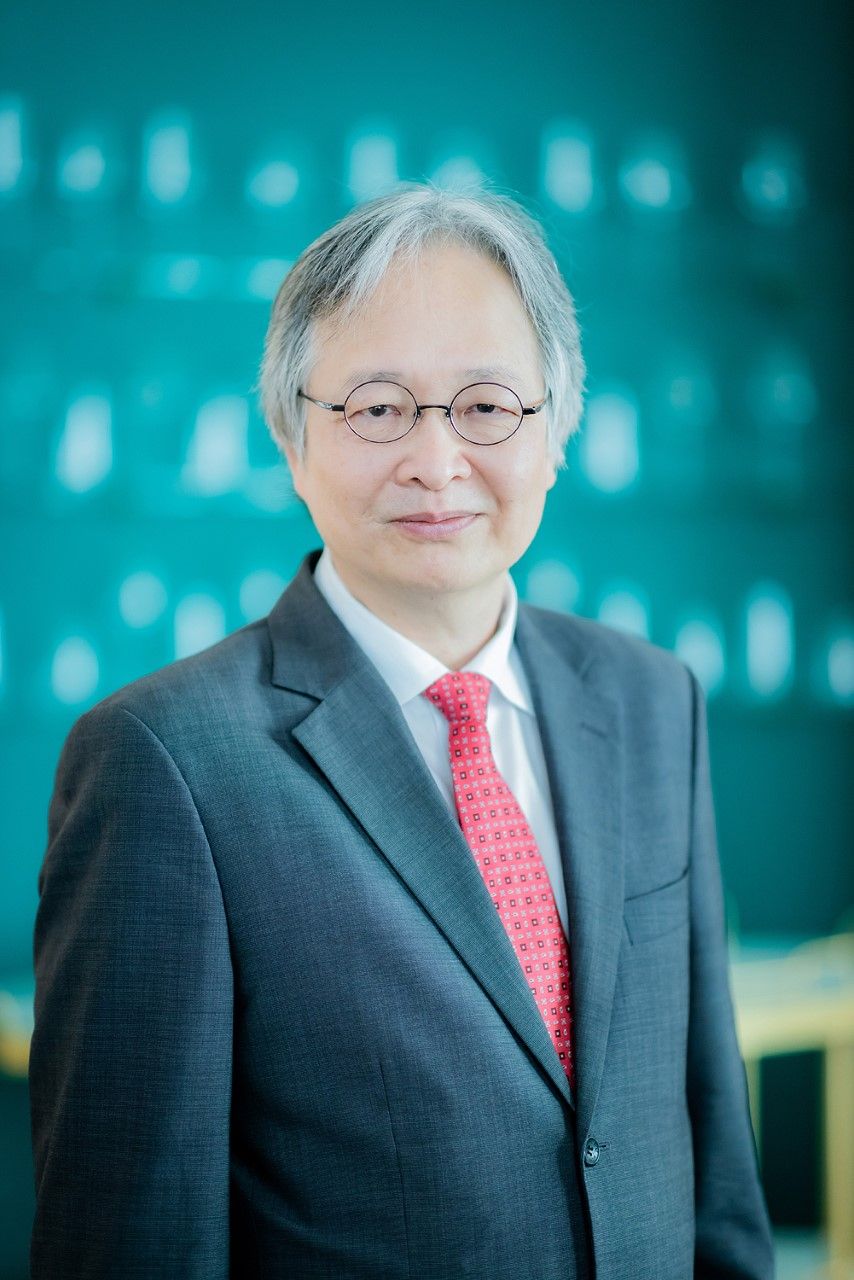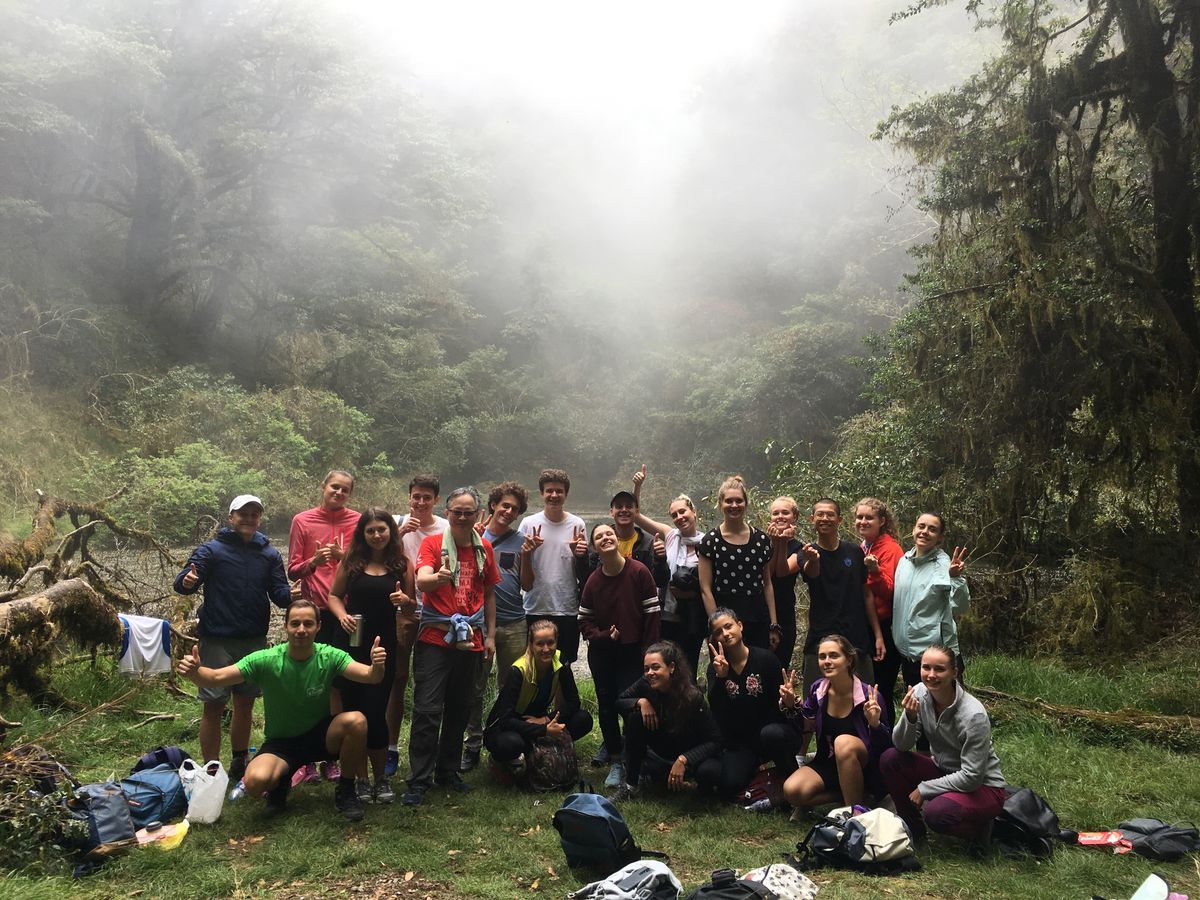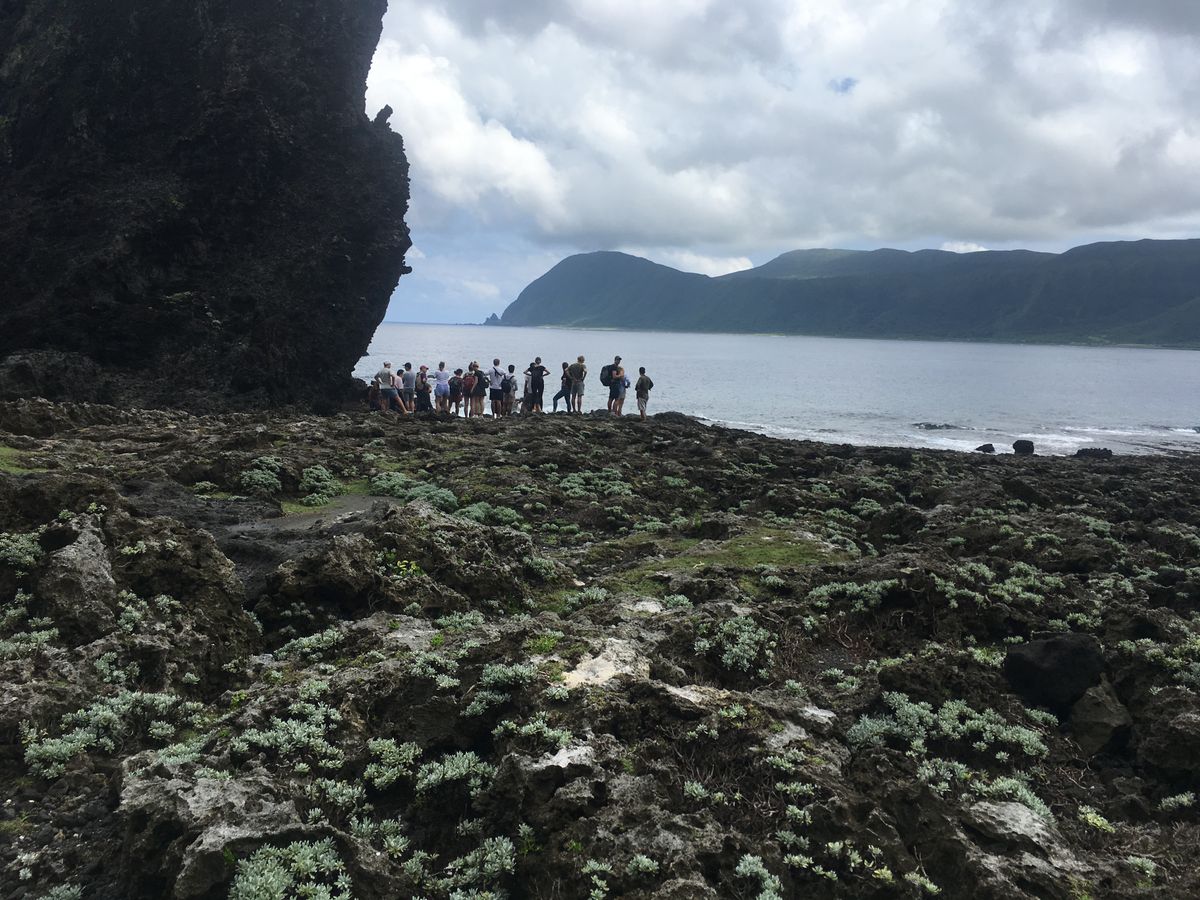Narnia and the eight immortals help sustain the world – teaches the Taiwanese professor in Budapest
Sustainability cannot be the game of the elites, we can become legends for the future only through understanding and cooperation – said the professor who applies unique methods and approaches in teaching and research.

Mr. Professor, your students said they felt themselves the protagonist of the Chronicles of Narnia films during the field trips you led them to. If you are an economist, why is it worth visiting rural areas and remote tribes? Where did the last trip bring you?
One of the main principles underlying the implementation of the circular economy is to use fewer and fewer raw materials to protect the natural environment. Many raw materials and natural resources used in cities are extracted from the remote areas. The rural and remote areas are just as important for sustainable development as are the cities. Thus, we cannot ignore the remote areas even if very few people live in those regions.
Of the indigenous people, about half of them live in cities, and the other half live in remote areas including the mountains and Orchid Island. Indeed, more than 60 percent of the land in Taiwan consists of mountainous areas, and indigenous people live sparsely all over these areas, especi-ally in some remote mountainous areas. It is thus important to understand their living environ-ment and quality of life to promote the circular economy and sustainability in Taiwan.
I regularly lead at least two field trips each year especially for exchange students to visit indigenous tribes. The following is a list of the past ten field trips for exchange students for your quick reference. Due to COVID-19, the last two field trips were held from May 15-17, 2020 (Zhenxibao and Smangus) and from May 29-31, 2020 (Orchid Island). We visited Zhenxibao and Smangus (both located in Hsinchu county) to visit the Atayal people and observe giant trees over 1,000 years old. As for the trip to Orchid Island, we visited the Tao (Yami) people and enjoyed the beautiful Pacific Ocean scenery.
Consume less, sleep less, spend less
Staying near the borders of myth and science: what is the purpose of the Ba-Xian-Guo-Hai group that you created? The Chinese legend of the eight immortals, also often showed in films, can it also serve scientific lessons, or even help criminals find normal life again as I heard?
Video games cannot help people achieve the goals and targets of sustainable development un-less they can help people stay connected for good reasons. People should meet in person as often as they can to communicate with each other. The game I created for my students involves physical and mental training. During the 3-day field trip, I normally ask the students to practice some principles such as consuming less to reduce the pollution, sleeping less to enjoy nature, and spending less to save for the future.

Elites will not achieve the goal: be a legend
It is not easy to practice the aforementioned principles, especially since some principles do not seem to be reasonable. Of course, we still enjoyed night drinks from time to time. I think it is essential to challenge young people in a timely manner to help them realize their potential. I seldom told students we were playing a group game called Ba-Xian-Guo-Hai. According to my ideal plan, the purpose of this game is to help my students become a legend in the future regardless of their walks of life. Society cannot rely on a small group of business elites to achieve the goals of sustainable development. The young people are our future, and it is important to challenge and motivate them when they are young.
Hungary, Budapest, BC4LS: the best place to understand West
Can legends also help link cultures as you do research for the Budapest Centre for Long-term Sustainability (BC4LS)? What is the focus of your work in the Hungarian capital? Is it different teaching sustainability in Asian countries and here? Are people interested in different things here, or is the message universal?
My main research focus is the circular economy and sustainability. My visit to this wonderful ca-pital city has been to take part in Hungarian sustainability efforts through the implementation of the circular economy. During my stay in Budapest, I also arranged field trips for myself and visited other cities and areas including Eger, Bukki National Park, Lake Balaton, Gyor, Komarom, Szeged, and the Hungarian border close to Slovakia and Croatia. I really like Hungary and have greatly enjoyed my stay in Hungary. The countryside in Hungary is as impressive as the beautiful city of Budapest.
I truly believe Hungarian wisdom has great potential to take a lead in global sustainability.
During my five-month visit to BC4LS, I finished a report of around 20,000 words entitled “Circular Economy and Sustainable Endogenous Growth.” This report will be published later by BC4LS as a booklet. In addition, I delivered class lectures at METU, NJE and BME, and also participated in various open events as a keynote or round-table speaker. Through my association with Hungarian people, I have developed a deep appreciation for Hungarian thoughtfulness and wisdom. In my opinion, Hungary, on the one hand, is the best place for Asian people to comprehend the Wes-tern world.
On the other hand, Hungary is the best place for other European people to explore the world in the East.
China has entered a critical period: do not leave the countryside out of its understanding
A slightly different topic: how do you see the dynamics of the Chinese economy? Do you think the role of Chinese trade and investments will increase in Europe? The pandemic and the last few years' geopolitical tensions have caused kind of a decoupling: do you think that will continue, or Europe and Asia including China will find the paths of more cooperation? Can that even serve the sustainability of our economies?
China has business potential in many areas, such as its close economic connections with the glo-bal economy. However, the Chinese economy has evolved into a critical stage characterized by slower economic growth, rising income inequality, and a deterioration in environmental quality. For business purposes, many investors only visit big cities in China, and many of the visits are arranged by government officials.

To better understand the Chinese urban-rural disparities, I strongly recommend that people visit as many rural areas as possible if they visit China. The Chinese government has begun to promote a so-called “socialist market economy” under the central government’s guidance and strong leadership. In this regard, I believe Chinese national and public enterprises will become more influential and dominant in the future.
As all countries worldwide face increasing domestic pressure, international coordination and cooperation will require more time and effort to reach a consensus.
The analyzes and conclusions in this study/article reflect the views of the authors only and do not necessarily reflect the opinion of BC4LS.








